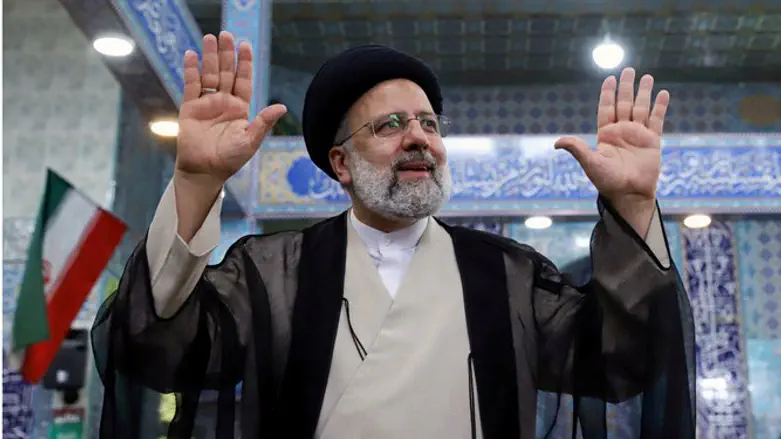
Hardline Shi’ite cleric and Iranian conservative Ebrahim Raisi was sworn in as president of Iran Thursday, after being elected in June to replace the previous president, Hassan Rouhani.
Raisi took the oath of office at the Iranian parliament, beginning his four-year term as president.
"In the presence of the holy Koran and before the nation, I swear to the omnipotent God to safeguard the official religion of the country and the Islamic Republic as well as the country’s constitution," Raisi said in the televised ceremony.
At the swearing-in ceremony, Raisi vowed to bring an end to US sanctions on the Islamic republic, denouncing the sanctions as “illegal”.
"The Iranian people expect the new government to improve their livelihoods ... All illegal U.S. sanctions against the Iranian nation must be lifted," Raisi declared, according to Reuters.
With Iran facing a simmering economic crisis which as fueled widespread frustration with the government, Raisi pledged his administration would “work to improve the economy to resolve the nation's problems.”
In July, the Iranian Foreign Ministry announced that Tehran plans to renew talks with Europe for the restoration of the Joint Comprehensive Plan of Action (JCPOA), better known as the 2015 Iran nuclear deal, after Raisi takes office.
After his election in June, in which he received 62% of the vote, Raisi announced that he would not meet with President Joe Biden.
Raisi also defended his role in a series of mass executions in 1988 – executions which led some to call Raisi the “Butcher of Tehran”. Some 5,000 people were killed in the executions, which critics calling them a purging of political prisoners. Raisi was a member of a so-called “death panel” which sentenced prisoners to death during the mass executions.
